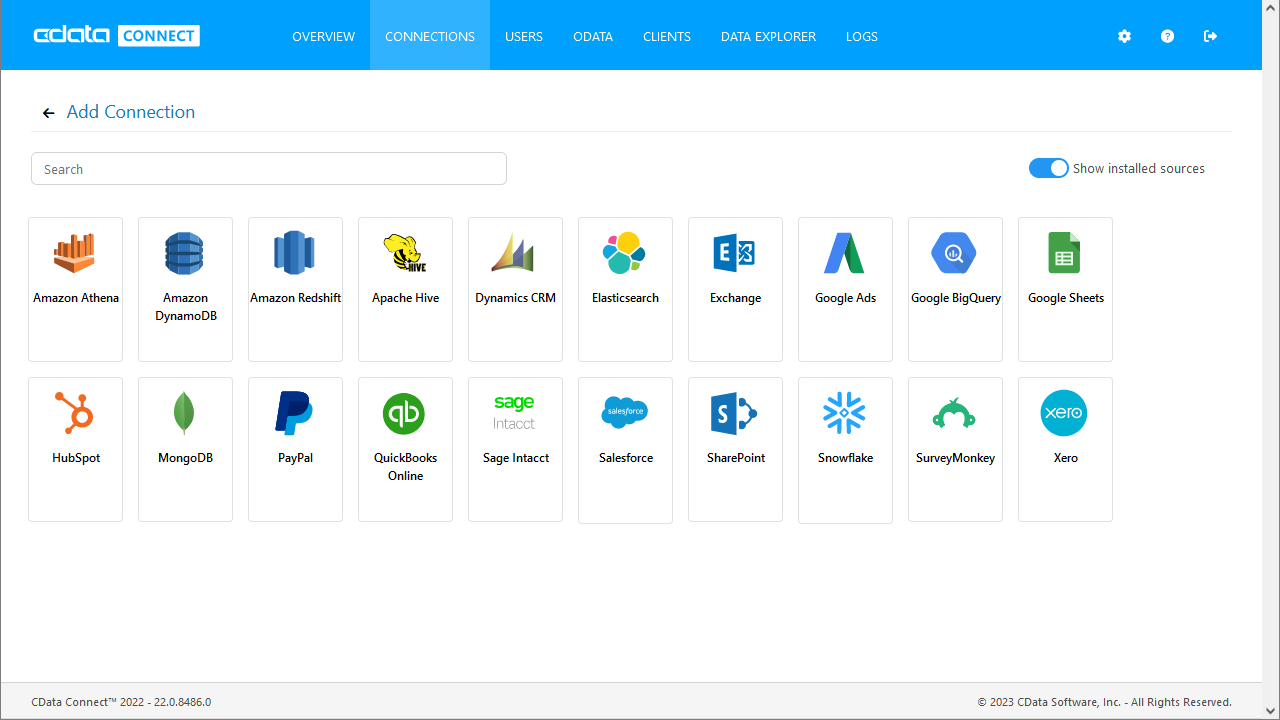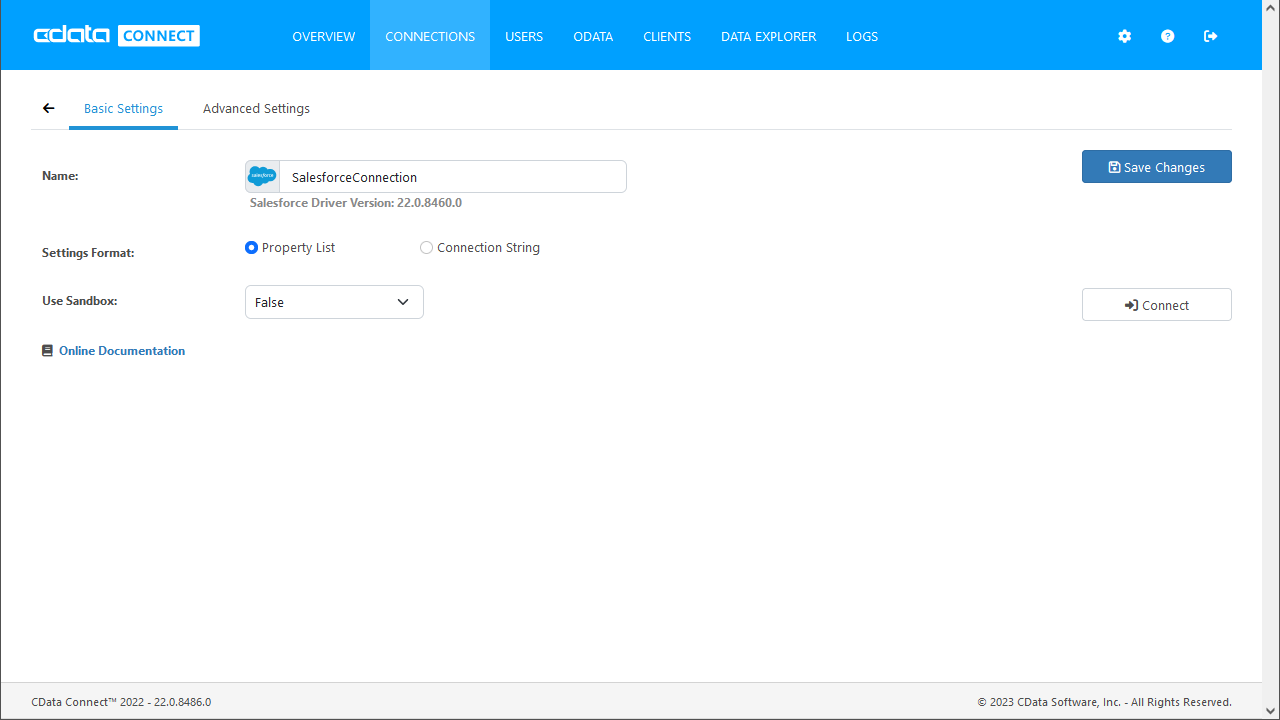Discover how a bimodal integration strategy can address the major data management challenges facing your organization today.
Get the Report →Query Unbounce Data as a SQL Server in Node.js
Execute SQL Server queries against Unbounce data from Node.js.
You can use CData Connect Server to query Unbounce data through a SQL Server interface. Follow the procedure below to create a virtual database for Unbounce in Connect Server and start querying using Node.js.
CData Connect Server provides a pure SQL Server interface for Unbounce, allowing you to easily build reports from live Unbounce data in Node.js — without replicating the data to a natively supported database. As you build visualizations, Node.js generates SQL queries to gather data. Using optimized data processing out of the box, CData Connect Server pushes all supported SQL operations (filters, JOINs, etc) directly to Unbounce, leveraging server-side processing to quickly return the requested Unbounce data.
Create a Virtual SQL Server Database for Unbounce Data
CData Connect Server uses a straightforward, point-and-click interface to connect to data sources and generate APIs.
-
Login to Connect Server and click Connections.
![Adding a connection]()
- Select "Unbounce" from Available Data Sources.
-
Enter the necessary authentication properties to connect to Unbounce.
Start by setting the Profile connection property to the location of the Unbounce Profile on disk (e.g. C:\profiles\Unbounce.apip). Next, set the ProfileSettings connection property to the connection string for Unbounce (see below).
Unbounce API Profile Settings
Unbounce uses OAuth to authenticate to your data.
In order to authenticate to Unbounce, you will first need to register an OAuth application. To do so, go to https://developer.unbounce.com/getting_started/ and complete the Register OAuth Application form.
After setting the following connection properties, you are ready to connect:
- AuthScheme: Set this to OAuth.
- InitiateOAuth: Set this to GETANDREFRESH. You can use InitiateOAuth to manage the process to obtain the OAuthAccessToken.
- OAuthClientId: Set this to the Client Id that is specified in your app settings.
- OAuthClientSecret: Set this to Client Secret that is specified in your app settings.
- CallbackURL: Set this to the Redirect URI you specified in your app settings.
![Configuring a connection (SQL Server is shown).]()
- Click Save Changes
- Click Privileges -> Add and add the new user (or an existing user) with the appropriate permissions.
With the virtual database created, you are ready to connect to Unbounce data from Node.js.
Query Unbounce from Node.js
The following example shows how to define a connection and execute queries to Unbounce with the SQL Server module. You will need the following information:
- Host name, or address, and port: The address of your Connect Server instance and the port (1433)
- Username and password: The username and password of a user you authorized on Connect Server
- Database name: The database you configured for Unbounce (API1)
Connect to Unbounce data and start executing queries with the code below:
const sql = require('mssql');
const config = {
user: 'your_connect_username',
password: 'your_connect_password',
server: 'connect_server_url',
port: 1433, // optional, defaults to 1433
database: 'API1',
authentication: {
type: 'default'
},
options: {
encrypt: true
}
}
console.log("Starting...");
connectAndQuery();
async function connectAndQuery() {
try {
var poolConnection = await sql.connect(config);
console.log("Reading rows from the table...");
var resultSet = await poolConnection.request().query(`SELECT * FROM table_name`);
console.log(`${resultSet.recordset.length} rows returned.`);
// output column headers
var columns = "";
for (var column in resultSet.recordset.columns) {
columns += column + ", ";
}
console.log("%s ", columns.substring(0, columns.length - 2));
// ouput row contents from default record set
resultSet.recordset.forEach(row => {
console.log("%s %s", row.CategoryName, row.ProductName);
});
// close connection only when we're certain application is finished
poolConnection.close();
} catch (err) {
console.error(err.message);
}
}
SQL Server Access to Unbounce Data from Node.js
You have retrieved live Unbounce Data using Node.js. Now, you can easily access data sources and more — all without replicating Unbounce data.
To get SQL data access to 200+ SaaS, Big Data, and NoSQL sources directly from your applications, try CData Connect Server.








